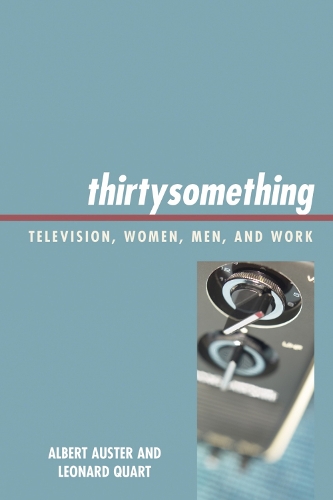
thirtysomething: Television, Women, Men, and Work
(Paperback)
Publishing Details
thirtysomething: Television, Women, Men, and Work
By (Author) Albert Auster
By (author) Leonard Quart
Bloomsbury Publishing PLC
Lexington Books
12th December 2007
United States
Classifications
Tertiary Education
Non Fiction
791.4572
Physical Properties
Paperback
112
Width 153mm, Height 232mm, Spine 9mm
177g
Description
thirtysomething: Television, Women, Men and Work examines one of television's most emotionally and culturally resonant programs and the many themes it contained. Addressing what it means to be a modern woman and the many corollary issues that revolve around the lives of the series' major women characters, thirtysomething explores female friendships and sexuality, male/female relationships, and the relationship of women to work and domestic life.
Just as the women reflected the dilemmas of contemporary femininity, the men in the series represented many of the problems of modern masculinity at a time of great flux in traditional male roles. thirtysomething discusses how the series dealt with the roles of husbands and fathers, the nature of male sexuality, and the complex tensions that exist in male friendships.
Authors Albert Auster and Leonard Quart view the television series as a program that not only provided a penetrating and imaginative portrait of the nature of marriage, friendship and career, but also is a conduit to understanding a particular urban-suburban American class culture and lifestyle during the late eighties and early nineties.
Reviews
The Greeks had Homer. The Victorians had Dickens. And the in late 20th century Americans had primetime drama. In their superb new book thirtysomething: Television, Women, Men and Work, Albert Auster and Leonard Quart dig into the always intricate relations between stories and the societies that produce them. Beyond journalistic clichs such as "superb acting," what made the series so successful and popular What image of America did it offer its dedicated viewers In clear but nicely nuanced language the authors offer some impressive answers. -- Jerry W. Carlson, CUNY, The City College and Graduate Center
Auster and Quart's thoughtful and intensive study will evoke fond memories of a series that was a touchstone for serious programming on American television. -- Philip Green, The New School for Social Research
Author Bio
Albert Auster is associate professor and associate chair of the Department of Communication and Media Studies at Fordham University.
Leonard Quart is Professor Emeritus of performing and creative arts at the College of Staten Island and CUNY Graduate Center.
